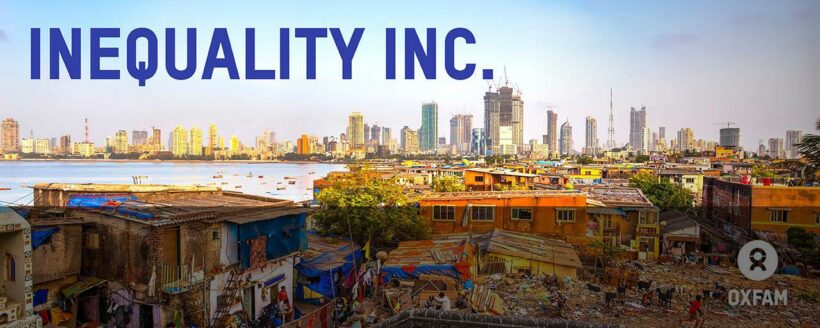The world’s five richest men have more than doubled their fortunes in real terms since 2020, rising from $405 billion to $869 billion and growing at a rate of $14 million per hour. By contrast, the combined wealth of nearly 5 billion of the poorest people has not grown at all.
These are some of the figures in the report “Inequality: the power to the few“, published by Oxfam at the World Economic Forum in Davos. The report says that in ten years – at the current rate – we could have the first trillionaire, while it will take 230 years to end poverty.
Globally, men own $105 billion more wealth than women. This difference is equivalent to four times the size of the US economy. It will take a woman working in health or social care 1200 years to earn the same as the CEO of a Fortune 100 company in an average year.
Seven of the world’s ten largest multinationals have a billionaire CEO or a billionaire as a major shareholder. 148 of the world’s largest companies (for which data is available) earned profits of approximately $1.8 billion in the 12 months to June 2023, a 52.5% increase over the average profit for the four years 2018-21. Between July 2022 and June 2023, for every $100 of profit generated by 96 of the world’s largest companies, $82 flowed to shareholders in the form of dividends or share buybacks.
For nearly 800 million workers employed in 52 countries, wages have not kept pace with inflation. Relative payrolls have experienced a decline in real terms of $1.5 billion over the 2021-2022 biennium, a loss equivalent to almost one monthly wage (25 days) for each worker.
For most of the world’s people, the start of this decade has been incredibly difficult: 4.8 billion people have barely been able to keep pace with inflation. For the poorest, who are often women or members of ethnic minorities and marginalised groups, daily life has become even more difficult. For the first time in 25 years, global inequality has increased. And the climate disaster we are witnessing, for which the super-rich are among the main culprits, is dramatically exacerbating this gap. Across the world, the cost of living has increased dramatically. For hundreds of millions of people, wages have not been (and still are not) enough to make ends meet, and their prospects for a better future are fading. Newspaper front pages have repeatedly been filled with stories of protests and strikes by workers struggling to survive.
Oxfam’s new analysis sheds light on how much of the world’s financial wealth now belongs to the richest 1%. “Based on Wealth X data, we estimate that the world’s richest 1% now own 59% of the world’s financial assets. If you look at the top of the global wealth pyramid, billionaires’ fortunes are tied to ownership of the large companies they control. In 2022, the 50 richest US billionaires owned 75% of their wealth in shares of the companies they ran. Warren Buffett – chairman, CEO, and largest shareholder of Berkshire Hathaway – owns 99% of his wealth in shares of his own company. Mark Zuckerberg, who controls Meta, owns 95% of his wealth in shares of the company. Jeff Bezos, former CEO, now chairman of the board and the largest shareholder of Amazon (with a 10% stake), owns 83% of his wealth in shares of the online retail giant”.
And big business uses its market power in ways that create and further increase inequality, for example by rewarding wealth rather than work, dodging tax obligations, profiting from the privatisation of public services, and fuelling the climate crisis.






